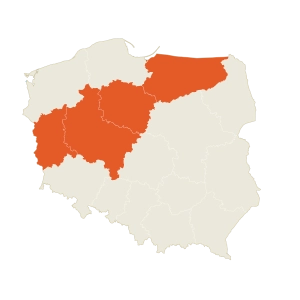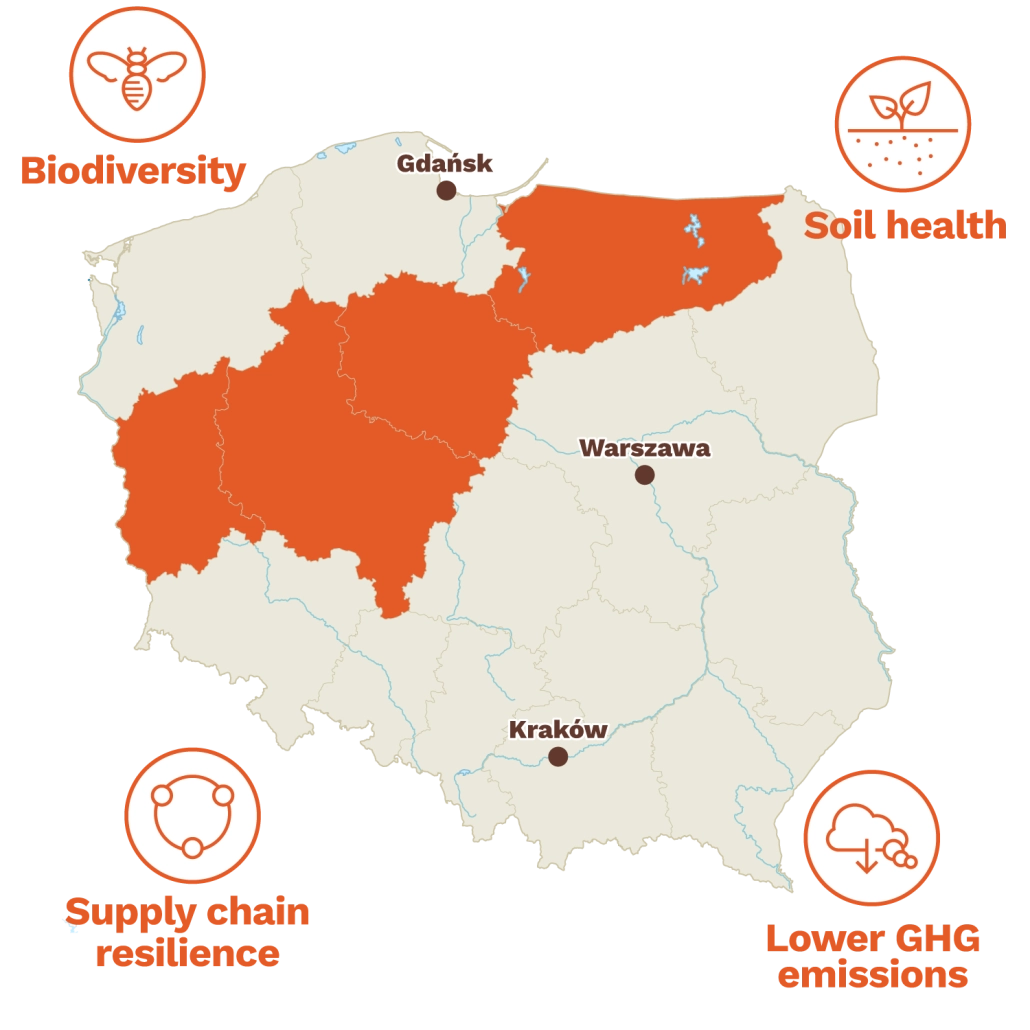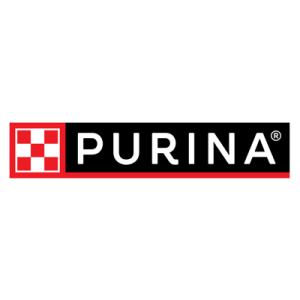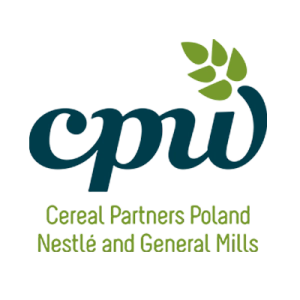Poland
Increasing supply chain resilience and environmental sustainability
Nestlé Purina and Cereal Partners Poland have invested in a Landscape Enterprise Network in the Greater Poland, Kuyavian–Pomeranian, Lubusz and Warmian–Masurian voivodeships of Poland, with the support of 3Keel and Preferred by Nature. Terra Nostra Foundation is delivering farmers training on regenerative agriculture. The primary goal is to collaboratively fund farm-based Nature-based Solutions (NbS) and regenerative agriculture practices, focusing on areas of wheat cultivation.
In the 2023 trade, funding has been invested in regenerative practices on 2,407 hectares of arable land, mostly in Greater Poland and Kuyavian-Pomeranian. The implemented practices cover in-field agronomic practices and farmer innovation investments.
Substituting synthetic fertilisers with organic ones
Integrating manure, compost and other organic fertilisers, including mycorrhizae/biostimulants to substitute synthetic fertiliser, reduces the risk of leaching and carbon emissions from fertilisation, as synthetic fertilisers are often the top contributor to an arable farm’s carbon footprint. Manure and compost can also help increase soil biology, structure and fertility.
Implementation of soil activators improving the soil structure, health and fertility
Some of the parameters of the soil (sorption capacity, humus content, soil structure) can be improved by application of different soil activators, effective microorganisms or products based on natural minerals, which are not defined as fertilisers. Although the main way to improve these soil parameters should be green manure implementation and the use of appropriate agrotechnical practices, it can be improved by the above- mentioned products.
Inclusion of grain legumes in arable rotations
Legumes are N-fixing crops because they form symbiotic relationships with bacteria in the soil that allows them to fix atmospheric N and use this in place of N provided by synthetic fertilisers. Increasing the area of grain legumes in arable rotation reduces N fertiliser use and increases soil health and biodiversity.
Farmer innovation investments
Compost production facility that can be moved every year to a different location, which fully covers the needs of natural fertilisation of the farm. Compost is produced from organic matter (leftovers after the crops) with addition of horse and chicken manure, as well as effective microorganisms.
To learn more or get involved, please use our contact form here
At a glance
Where Poland, with a focus on central regions
Who Nestlé businesses, with delivery coordination by Preferred by Nature and 3Keel
What Farm-based measures to increase supply chain resilience and environmental sustainability
Download the Poland factfile here for more information.








